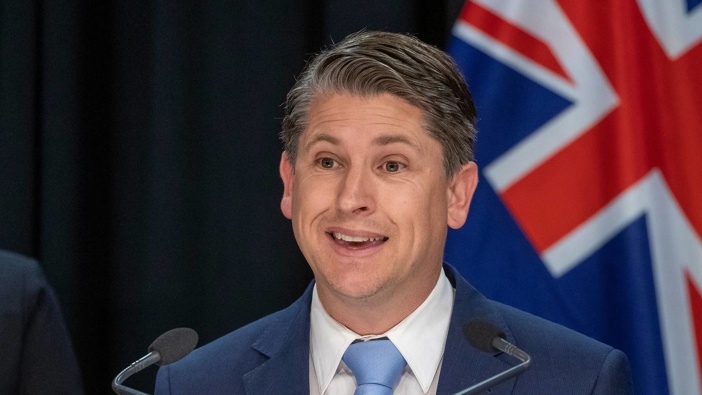Officials have urged the Government not to pursue fair pay agreements, warning the plan did not appear to meet international standards and may create more costs than benefits.
Fair pay agreements were a manifesto promise of the Labour Party in the 2017 and 2020 elections, but legislation to give effect to the changes is yet to come to Parliament. The agreements aim to set standards within sectors or industries above the legal minimum.
The process would be triggered once a representative test has been met, at which point unions and employer representatives would take part in compulsory bargaining. If an agreement cannot be reached, the Employment Relations Authority would make a binding determination.
The Government has acknowledged the change - which will put the union movement at the heart of negotiations for sector-wide agreements - would represent the biggest change to industrial relations since the passing of the Employment Contracts Act in 1991.
On Thursday, documents were released showing the Ministry of Business, Innovation and Employment said its preferred option was to drop plans for FPA and instead improve collective bargaining mechanisms. Further, the Government should empower a government body to set minimum standards for various sectors "where it establishes that there is a labour market problem".
A regulatory impact statement from MBIE said the Government's preferred option of unions and employers bargaining to set minimum pay and terms and conditions across sectors or occupations had "significant downsides".
Once an FPA process is started, there is no option for employers to pull out or for workers to take industrial action.
"Although the outcome is difficult to predict, we anticipate in many cases the system is likely to result in bargaining stalemates and determinations fixing terms by the Employment Relations Authority, so the added benefit of bargaining may be limited."
The Government's preferred option was "not well targeted", MBIE said.
"This means the proposed system may create significant labour market inflexibility and costs when it is used in sectors without a demonstrable labour market issue."
MBIE said the system was likely to lead to an improvement in conditions for workers, but that overall it may impose more costs than benefits.
"The low threshold for initiation means that the system could be used in situations where the marginal improvement in terms and conditions for existing workers are achieved at a significant cost to employer flexibility.
"Given that the main benefits to workers are effectively a transfer from employers, we think there is a significant risk of setting up a system which has net overall costs if the other benefits to workers are less than the cost to employers and of providing the system."
MBIE's approach, of modifying collective bargaining rules and having the government set minimum standards would, it considered, provide "a way to address the underlying problems in a way that is more consistent with the current regulatory framework and international requirements relating to collective bargaining".
As well as being better targeted, MBIE said its preferred option "involves a less complex process and outcomes".
Because the option was less developed than the Government's preferred option, more policy work and consultation was required.
'Widely consulted'
Workplace Relations Minister Michael Wood said the Government was delivering on a policy which Labour took to the election and consulted on "extensively" in the last Parliamentary term.
"These kind of sector-wide agreements are common across the OECD, including in Australia and Germany," Wood said in a statement.
"We have a low wage economy and Fair Pay Agreements will improve wages and conditions for employees, as well as level the playing field so that good employers don't get undercut and disadvantaged.
"We expect this will help out those essential workers who have served the country so well throughout the pandemic by giving them better protections and opportunities."
National's workplace relations spokesman Scott Simpson said fair pay agreements was simply Labour "pursuing an ideological agenda" despite advice not to.
"It has become a worrying trend for Labour to ignore official advice and this is another example of it. MBIE clearly recommended less drastic courses of action and warned of 'significant risks' in pursing FPAs," Simpson said.
Act leader David Seymour said FPAs were a plan for compulsory unionism and should be scrapped.
"Labour has been told by its officials that so-called 'fair pay' agreements would wreck the economy and undermine freedom of association," Seymour said.
"Michael Wood will no doubt ignore this advice and push ahead with his radical plan in order to help his union mates. The unions can only recruit New Zealanders by forcing them to join."
text by Hamish Rutherford, NZ Herald
Take your Radio, Podcasts and Music with you










